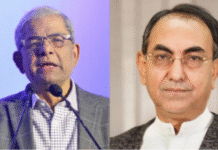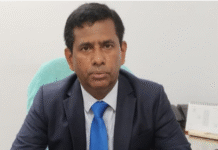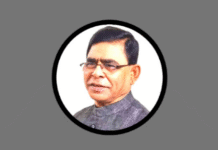Some 30 alleged extrajudicial killings took place in Bangladesh in 2012 alongside at least 10 enforced disappearances, said the Amnesty International in its report on the state of human rights across the world. State security forces were implicated in torture and other ill-treatment and the government failed to protect ‘indigenous communities from attack by Bengali settlers’, said the report that covered the period from January 1 to December 31, 2012.
At least 30 people were victims of alleged extrajudicial executions. Police claimed they had been killed in gun battles with security forces.
Families said they had been killed after being arrested by people in plain clothes identifying themselves as Rapid Action Battalion (RAB) personnel or other police. No one was brought to justice for these killings.
Torture and other ill-treatment were widespread, committed with virtual impunity by the police, RAB, the army and intelligence agencies. Methods included beating, kicking, suspension from the ceiling, food and sleep deprivation and electric shocks. Most detainees were allegedly tortured until they “confessed” to having committed a crime. Police and RAB allegedly distorted records to cover up the torture as well as misrepresented arrest dates.
At least 10 people went missing throughout the year. In most cases, the victims were never traced. Those bodies that were recovered, bore injuries, caused by beatings.
Ilias Ali, Sylhet division secretary of the opposition BNP, disappeared along with his driver Ansar Ali on 17 April. The government promised to investigate the case but provided no information in this regard.
Women continued to be subjected to various forms of violence. These included acid attacks, murder for failing to pay the requested dowry, flogging for religious offences by illegal arbitration committees, domestic violence and sexual violence.
As in previous years, the authorities failed to settle Indigenous Peoples’ claims to land that had been seized from them during the internal armed conflict (1975-1997), or recently occupied by increasing numbers of Bengali settlers. Tension between the two communities and the failure of the security forces to protect local Indigenous people against attacks by Bengali settlers led to several clashes and injuries on both sides.
At least 20 people were injured in a clash between Indigenous people and Bengali settlers in Rangamati on 22 September. Local people said security forces came to the scene but failed to stop the violence.
Trade union leaders supporting garment factory workers’ rallies against low pay and poor working conditions were harassed and intimidated. One man was killed.
At least 111 workers died from burns and other injuries, some factory officials allegedly refused to open the gates to let the the workers escape a fire that broke out at Tazreen Fashion in Savar town, north of the capital Dhaka, in November.
Attacks against members of minority communities took a new turn in late September. Thousands of people protesting against an image posted on Facebook of the Qur’an, which they considered derogatory, set fire to more than 20 Buddhist temples and monasteries, one Hindu temple and scores of homes and shops in the southern cities of Cox’s Bazar and Chittagong.
At least 45 people were sentenced to death. One man was executed in April.
Political violence escalated in December, when opposition parties tried to impose day-long general strikes. At least four people died and dozens of strikers and police sustained injuries. Jamaat-e-Islami demanded the release of their leaders currently being tried on war crimes charges. The Bangladesh Nationalist Party (BNP) demanded that the forthcoming general elections be held under a caretaker government. Members of a group affiliated with the governing party attacked opposition members, beating and stabbing one bystander to death. National and international concern about allegedly high levels of corruption were echoed in June when the World Bank cancelled US$1.2 billion credit for the construction of Padma bridge in central Bangladesh, due to the government’s insufficient response to allegations of corruption. An inquiry by the Anti-Corruption Commission remained open.
The authorities continued to raise concerns with India over killings of Bangladeshis by Indian border control forces. More than a dozen Bangladeshis were killed by Indian forces while crossing the border into India.
Source: The Independent









